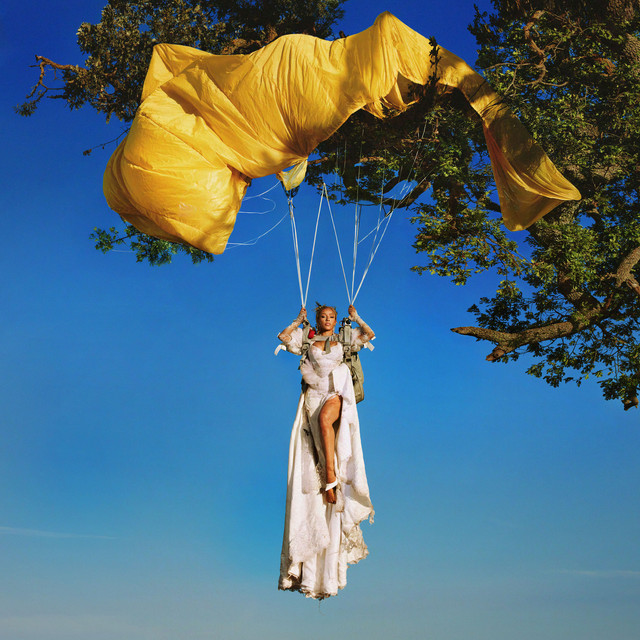By Mary Thurmond | Photo Editor
Doja Cat has always been a shapeshifter, but “Vie” marks almost a full metamorphosis.
After saying “no more pop” during her Scarlet era, she stripped away the gloss and leaned into something darker, stranger and more self-possessed. Now, with “Vie,” she’s circling back — sort of. She recently told CBS News she’s “a rapper who makes pop music,” but this isn’t Top 40 pop. It’s lo-fi, theatrical and raw.
The opener, “Jealous Type,” sets the tone with neon swagger and disco drama. The VMAs performance with Kenny G gave it a cinematic flair, but the emotional undercurrent is what lingers. It’s glossy, but the cracks show.
“Cards” is a slow burn. It opens with muted tension, like a hand being dealt in silence. The production is minimal, almost skeletal, letting Doja’s voice carry the weight. It’s not dramatic, but deliberate — like a quiet prelude to the chaos that follows.
“AAAH MEN!” is theatrical and unhinged in the best way. Doja leans into satire, poking fun at masculine ego with chaotic vocals and unpredictable shifts. It’s campy, biting and oddly cathartic.
“Couples Therapy” feels like a diary entry set to synth. The beat pulses like a heartbeat, steady but anxious. Doja’s delivery is restrained, almost clinical, as she dissects intimacy with surgical precision.
“Gorgeous” plays like a mirrorball confession. The production sparkles with synths and layered harmonies, but there’s a quiet ache beneath the shimmer. The accompanying music video leans into surreal glamour, balancing beauty with unease.
“Stranger” plays as a standout moment of vulnerability. The melody floats, but the lyrics weigh heavily. There’s a sense of disconnection here, like watching yourself from across the room.
“All Mine” is possessive, but playful. The production leans into retro textures, giving it a flirtatious bounce. Doja’s vocals are layered and lush, but there’s a sharpness underneath.
“Take Me Dancing (ft. SZA)” is the album’s most collaborative moment, and one of its most romantic. SZA’s presence adds warmth, and the track glides like silk. It’s nostalgic without being stuck in the past — like a love song you remember from a dream.
“Lipstain” cruises on a steady beat, offering a moment of autopilot in an otherwise daring ride. It’s sleek and catchy, but less emotionally charged than the other tracks in this album.
“Silly! Fun!” throws a curveball. The title says it all: it’s chaotic, unserious and full of silly joy. Doja plays with cadence and character, slipping between voices like costume changes. It’s not deep, but it’s deliberate.
“Acts of Service” shifts into lo-fi intimacy, echoing the hazy vulnerability of tracks like “Alone” and “Streets.” Jack Antonoff’s influence is clear in the sparse arrangement and clipped vocal delivery, but the emotional texture feels familiar, like Doja’s late-night musings in previous work.
“Make It Up” leans into trap-ballad territory, messy and pleading. The repetition wears thin, but the sentiment sticks. It’s a sonic apology wrapped in playful production.
“One More Time” — a slow-motion spiral. The beat drags like a memory you can’t shake, and Doja’s vocals feel distant, almost ghostly. It’s about repetition, regret and the ache of wanting something that’s already gone.
“Happy” is ironic and introspective. The production is bright, almost bubbly, but the lyrics tell a different story. Doja questions the performance of happiness, peeling back the layers of curated joy.
“Come Back” is soft, but unresolved. As a closer, there’s longing here, but no clear resolution. Doja’s voice is front and center, stripped of theatrics. It’s not a grand finale — but the kind that lingers.


